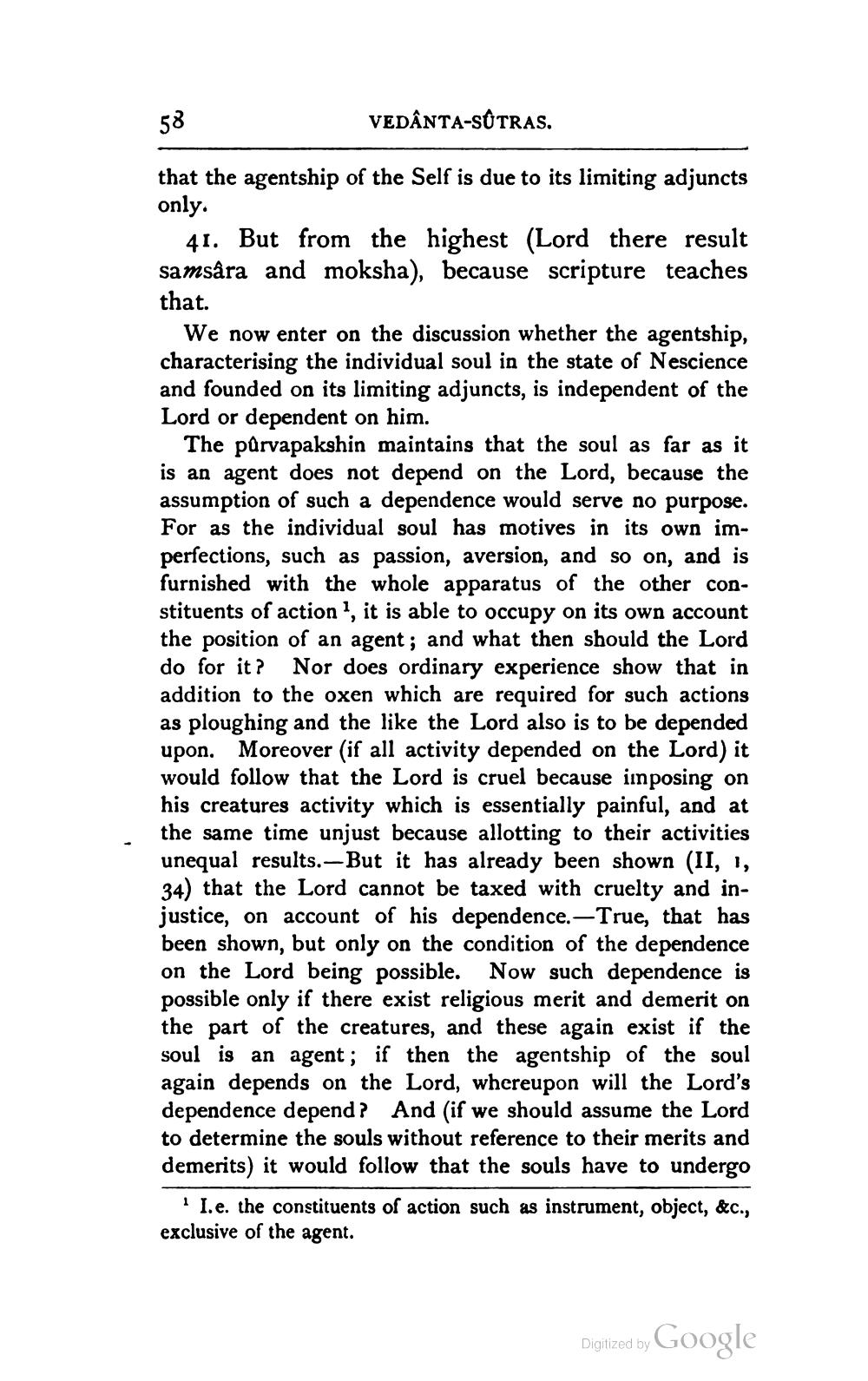________________
58
VEDÂNTA-SÛTRAS.
that the agentship of the Self is due to its limiting adjuncts only.
41. But from the highest (Lord there result samsåra and moksha), because scripture teaches that.
We now enter on the discussion whether the agentship, characterising the individual soul in the state of Nescience and founded on its limiting adjuncts, is independent of the Lord or dependent on him.
The purvapakshin maintains that the soul as far as it is an agent does not depend on the Lord, because the assumption of such a dependence would serve no purpose. For as the individual soul has motives in its own imperfections, such as passion, aversion, and so on, and is furnished with the whole apparatus of the other constituents of action, it is able to occupy on its own account the position of an agent; and what then should the Lord do for it? Nor does ordinary experience show that in addition to the oxen which are required for such actions as ploughing and the like the Lord also is to be depended upon. Moreover (if all activity depended on the Lord) it would follow that the Lord is cruel because iinposing on his creatures activity which is essentially painful, and at the same time unjust because allotting to their activities unequal results.- But it has already been shown (II, 1, 34) that the Lord cannot be taxed with cruelty and injustice, on account of his dependence.-True, that has been shown, but only on the condition of the dependence on the Lord being possible. Now such dependence is possible only if there exist religious merit and demerit on the part of the creatures, and these again exist if the soul is an agent; if then the agentship of the soul again depends on the Lord, whereupon will the Lord's dependence depend? And (if we should assume the Lord to determine the souls without reference to their merits and demerits) it would follow that the souls have to undergo
II.e. the constituents of action such as instrument, object, &c., exclusive of the agent.
Digitized by
Digilzed by Google




